Tomorrow the country’s six presidential contenders will hold the first of two debates ahead of the October 27 election. Each will have their own repertoire, there will be few direct exchanges according to the agreed rules of engagement, and the outcome – unless something unexpected happens – will unlikely change what seems to be a preset course for this election, at least ever since the August PASO primary.
Still, the debate is good news in that it will bring a sense of normalcy to a country in which normal is the exception. Tomorrow’s face-off will technically be the first presidential debate featuring all the presidential candidates in the race in Argentina’s history. In 2015, then front-runner Daniel Scioli decided not to participate, accepting only an offer to show up for a second-round, one-on-one bout, when the upper hand was with Mauricio Macri.
The president should largely be credited with Argentina’s (late) arrival into what is a typical campaign feature of most Western democracies. Not only was the legislation making debates mandatory for presidential candidates passed during his administration, he has personally never avoided debate during his 15-year-plus political career, which started with a first shot at the city of Buenos Aires mayoral office in 2003.
His position, with regards to tomorrow, is difficult. At first sight, it might seem the president has little to lose, given the 16-percentage point lead opposition candidate Alberto Fernández emerged from PASOs with. But if wetake a closer look, he has plenty to lose. Macri’s administration has virtually nothing good to show in terms of the country’s economic performance, and all the candidates to his left and right will remind him – and viewers – of that fact. He might also be reminded of the many promises he made – and failed to meet – in the 2015 debates.
Given the tone of his “#SíSePuede” (“Yes, we can”) campaign across the nation, Macri’s worst nightmare is losing some of the 32 percent of voters who backed him in August. The president’s campaign is fuelling the unlikely expectation that the race can be turned around (and he even came up with a ‘turn-around’ dance move during his rallies) but the more realistic approach from the ruling party’s campaign managers is that it is better to hold their ground and live to fight another day as the opposition.
With that strategy in mind, Macri is unlikely to be on the offensive too much when he faces Fernández in the city of Santa Fe tomorrow evening. Faced with the choice of taking a risk and trying to win a few extra votes or consolidating his support base more safely, the president will probably go for the latter.
Alberto Fernández will not be comfortable either, even if he is in a comfortable position in the race. For one, he believes the debate is useless. Even at the start of the campaign, he cast doubts over his participation, saying “it doesn’t make sense to debate with a liar” (a reference to Macri). His sole mission tomorrow will be sustaining his lead and avoiding all trouble.
Unlike his rival, the Peronist contender is not keen on media training and debate rehearsals. He feels he is articulate enough to face the debate without much planning. Actually his main concern at this stage is toning down his campaign promises, so that his language cannot be used against him immediately after he eventually takes office. His safe ground is to criticise Macri, to avoid confrontation with the rest of the candidates and give as few forward-looking definitions as possible.
The rest of the candidates will mostly serve as extras in a movie that already has its stars and script outlined. They will seek to target the main contenders equally. Together, Roberto Lavagna, Nicolás Del Caño, Juan Gómez Centurión and José Luis Espert won around the same amount of votes than the gap between Fernández and Macri in the PASOs. The president this week sought to snatch some from votes from the rightist Gómez Centurión, whose main campaign argument is that he is against abortion. Fernandez, meanwhile, might want to tell Lavagna’s followers tomorrow night that voting for the former economy minister makes no sense, amid rumours that the Consenso Federal hopeful could even be offered a prominent position in the coming administration.
The polls, widely discredited after badly missing the primary
result, point to a widening rather than narrowing difference in
Fernández’s favour. A debate is very unlikely to change that.related news







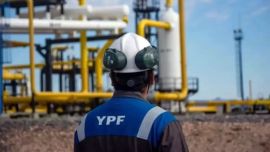






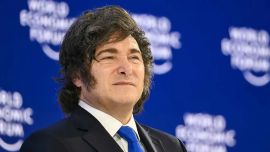
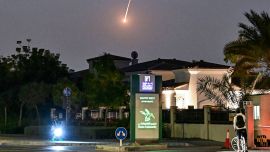
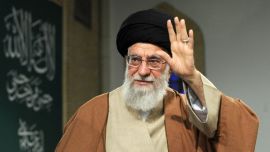
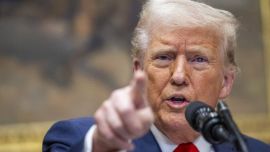
Comments